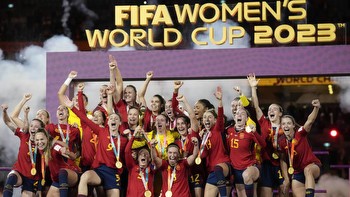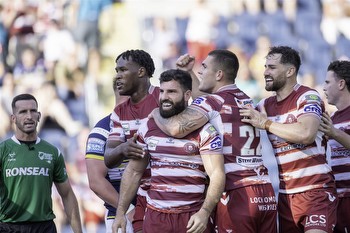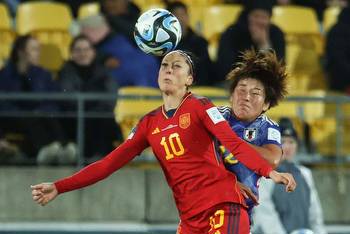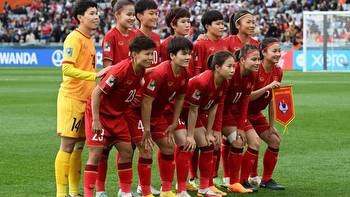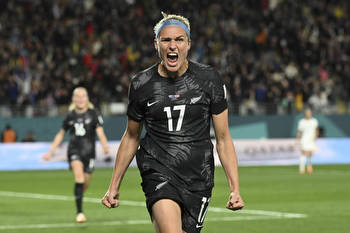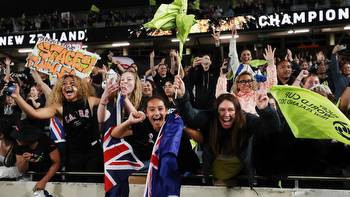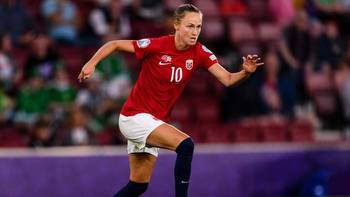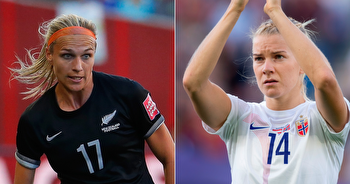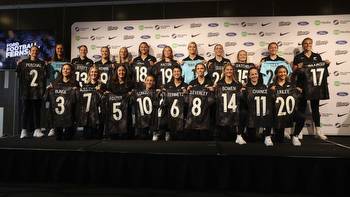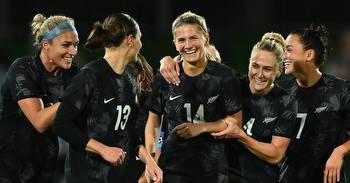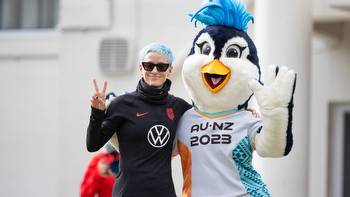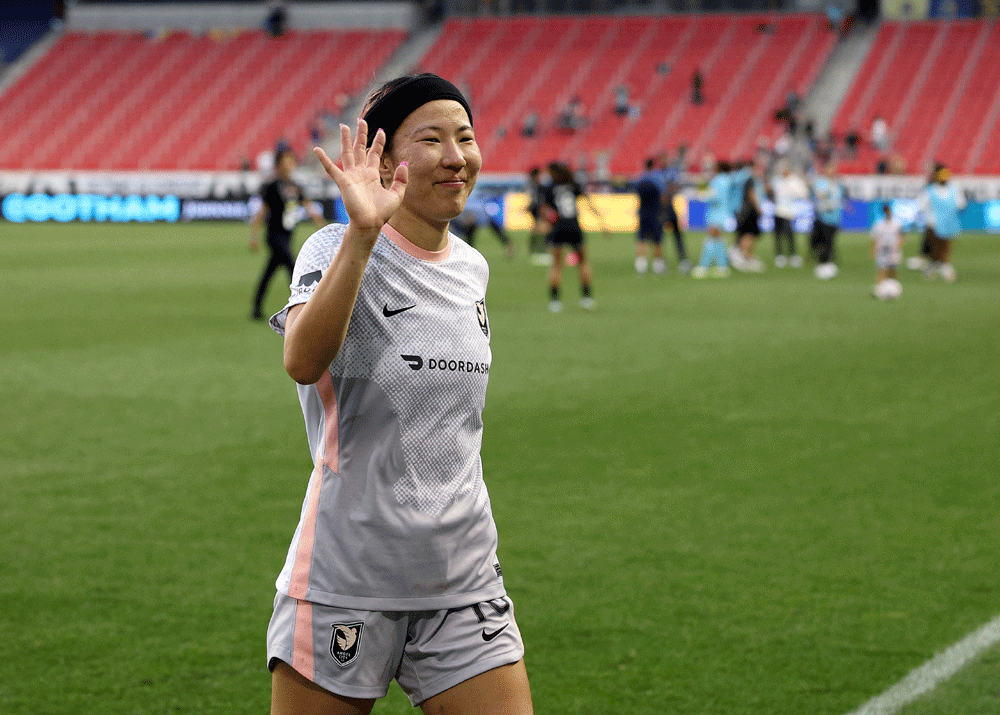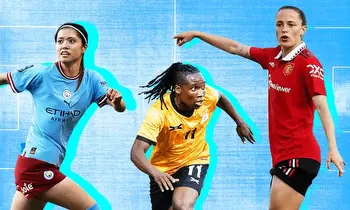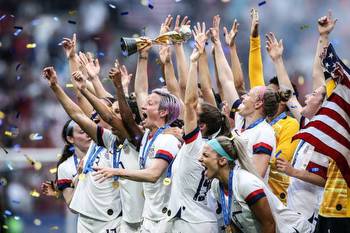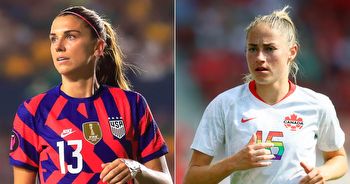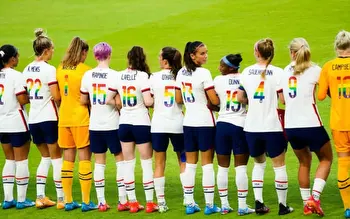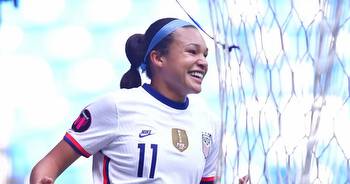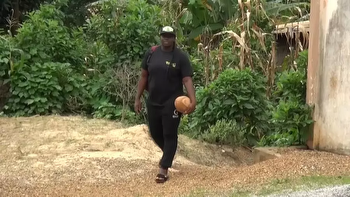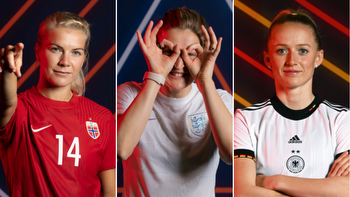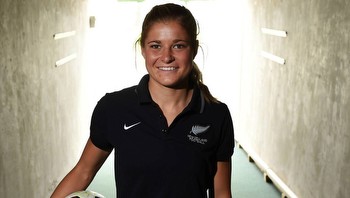Women’s World Cup protests: ‘To put the thing you love most on the line is devastating’
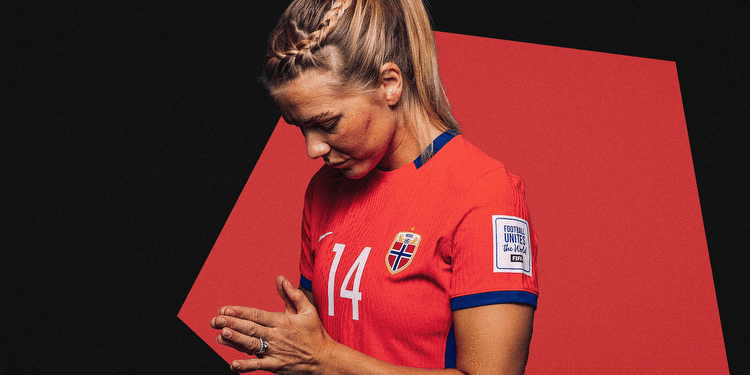
When the Australia players chose to release a video on Monday — three days before the start of the Women’s World Cup — criticising the gender disparity in prize money at the tournament, it was just the latest example of a team spending valuable time addressing off-field issues rather than focusing on performance on it.
In a message released via Professional Footballers Australia, they called out FIFA for failing to offer equal prize money and demanded those who run the game do more to provide opportunities for women and girls.
Players speaking out, either publicly or via other means, has been a consistent theme in the months leading up to the Women’s World Cup.
At one point this year, players from France, Spain and Canada (the fifth, sixth and seventh-best teams in the world according to FIFA rankings) were all involved in some form of dispute with their federation. More recently, players from Jamaica added their names to that list, swiftly followed by Nigeria. England, too, have had their own issues, as have South Africa.
— Rebecca Spencer (@beckyspencer2) June 15, 2023
In many cases, it cast huge doubt over their participation at the biggest tournament in women’s football. For some players, it cost them the chance to compete at all.
Australia’s players do not have to worry about such consequences on this occasion — they are speaking out against FIFA rather than their federation. But it is yet another instance of off-field issues dominating the agenda.
This is nothing new for the women’s game. In recent years we’ve seen the USWNT fight a long battle with the United States Soccer Federation (US Soccer) over equal pay and working conditions, ultimately filing a gender discrimination lawsuit against the federation in 2019 (a landmark $24million/£18.8m settlement was reached in 2022, with the federation promising equal pay between the men’s and women’s national senior teams for friendlies, tournaments and World Cup matches).
We’ve also seen individual players take a stand. Chief among them: the Norway striker and global star Ada Hegerberg. The first recipient of the women’s Ballon d’Or (in 2018) and winner of six Champions League titles, Hegerberg first represented her country at the age of 15. But in the summer of 2017, she made the decision to stop playing for Norway, having become exasperated at the approach taken to women’s football and the development pathway for young girls by the Norwegian federation.
“When I took the decision, it was like a weight off my shoulders,” she said in an interview with CNN in 2019. “I’ve done what I can do to make an impact and do the best to make things better. When that doesn’t work, you have to take a choice. Life is full of difficult choices to make.”
There was immense pressure on her to return for the 2019 World Cup but Hegerberg did not waver. As her former team-mates went on to reach the quarter-finals (where they were beaten 3-0 by England), she watched from the sidelines.
Hegerberg returned to the national team in March 2022, meaning her absence lasted almost five years.
From the outside, it can be difficult to understand the effects these types of actions have on players. They’re elite athletes, used to competing hard, used to fighting for places, used to putting themselves out there to be shot at by anyone watching from near or far.
But these situations are different to the on-pitch battles players are used to. They can be divisive. Political. Nasty. They can lead players to doubt themselves, to question whether they are doing the “right” thing and just who, or what, they are doing it for.
“At a personal level, it was one of the most difficult and challenging periods of my life,” says the former 100-cap New Zealand international Sarah Gregorius, who is now director of Global Policy & Strategic Relations in Women’s Football at FIFPRO. “I wouldn’t wish that on anyone — any player or any person because it’s unbelievably difficult to have to go through something like that.”
In 2018, Gregorius was part of a New Zealand squad that felt there was a “fundamental incompatibility” between a large group of players and the head coach of the team.
Thirteen players signed a letter declaring they would not play under Austrian coach Andreas Heraf, who they accused of bullying and creating a culture of fear.
Their actions led to an investigation, not only into Heraf’s conduct but into the wider structures around the team. Heraf (who was also the technical director at New Zealand Football) resigned, as did chief executive Andy Martin, who was heavily criticised for his appointment of Heraf and subsequent defence of the then-50-year-old.
“It ended up snowballing a little bit,” says Gregorius, who explains that alongside the investigation validating the players’ allegations, finding “various levels of unprofessional and non-elite behaviour taking place”, it uncovered a culture within the New Zealand Federation that “also wasn’t fit for purpose”.
“It ended with the resignation of a few other people that were certainly not on the radar of the players,” adds Gregorius. “But I think it shows that, oftentimes, a member of technical staff, a person, is just the product of a system that has neglected players, not listened to players and certainly not taken their views into consideration adequately enough.”
Asked to explain why this was such a difficult period in her life, Gregorius says it’s relatively simple: “I really loved playing football. And I really loved playing football for my national team. And all of a sudden, that was in jeopardy. It was the case for me, it was also the case for a lot of my team-mates, and that is so unbelievably difficult for a player.
“You have to understand that it’s only under the worst of circumstances that players would opt out of that opportunity. Because it’s everything that players say that it is: it’s a huge honour, a huge privilege. A lot of the time, it’s everything that you’ve dreamed of for as long as you can remember.
“That part, at a very human level, at a player level, is so challenging. To have to go through that and to put the thing that you love the most in the world, and that has been such a core part of your identity for so long, on the line, because you’re in a situation where you’re not being respected, your rights aren’t being upheld. It’s absolutely devastating.
“For me, that was the big challenge and then seeing the mental impact that it was having on some of my team-mates as well. The ones who triggered the action and participated in it, but it also created a huge amount of uncertainty for all players.
“Being an international football player is not a part-time job. Maybe you only play in certain windows but you think about it constantly — always training for it, always preparing for it. If you’re having to do that without actually knowing if you’ll ever step foot on that field… it’s mentally very, very difficult for elite athletes to have to do that.”
Spain’s two-time Ballon d’Or winner Alexia Putellas said in March this year it is “exhausting to have to be constantly demanding improvements in order to perform better. We want the players to be able to focus 100 per cent on performing. The leaders should improve our conditions without having to ask for it all the time.”
And, speaking to The Athletic, Canada’s Julia Grosso described it as “stressful” to be preparing for a World Cup amid an ongoing dispute between the players and Canada Soccer.
“It’s definitely unfortunate that we have to go through that,” she says. “We’ve been disappointed and want more. We’re going to fight for that until we get what we deserve. It’s definitely been hard on our team. I know that my team is just a bunch of fighters. We always pull through together and, no matter what the circumstance, we’re always by each other’s sides. That’s all that matters. It’s unfortunate, we deserve a lot better — but hopefully we’ll get that.”
GO DEEPER
Canada women's national team strike attempt explained
All of this makes it so much more impressive to recall that, in 2019, the USWNT won their fourth World Cup, three months after 28 players on the roster filed a gender discrimination lawsuit against the US Soccer. In their statement the players described “institutionalised gender discrimination” that they said had existed for years, not only affecting how much they earned but also where they played and how often, how they trained, the medical treatment and coaching they received, and how they travelled to matches.
Jeffrey Kessler, the co-chair of Winston & Strawn’s sports law practice group, was the lead attorney representing the USWNT players in 2019 and tells The Athletic the players they did an “extraordinary” job at the World Cup that year.
“What you have to remember is that the main focus of world-class athletes when they go to an event like the World Cup is doing their best to prepare for and win the games,” he said. “This focus is difficult to maintain when you are also engaging in high-visibility protest activities.
“The women on the national team in the United States really did both in Paris. They were able to bear the public pressure of fighting for equal pay in the most visible way. And they also won the World Cup.
“No one should underestimate how difficult or distracting doing both of those things at the same time could be.”
Kessler says that alongside the team’s “incredible dedication, preparation, skill, and internal fortitude”, there were two reasons in particular why the USWNT were able to do that so successfully.
Firstly, he says the players were able to use their fight for equality to further their competitive intensity and desire to win “because they wanted to show that they deserve equal pay with the men — and winning the World Cup obviously underscored that”.
Secondly, Kessler says the USWNT had great leaders, such as Megan Rapinoe and Alex Morgan (among others), who not only were able to turn the legal battle into something that unified the team but who were also willing to absorb more of the public heat, leaving their team-mates free to focus on the game.
“In any type of political protest, there are some players who are more willing to take the pressure and articulately express the point of view while still focusing on their game and preparation. That is a great help to the rest of the team-mates who might find it more difficult to do both at once.”
The ways in which players are impacted by the challenge of carrying a protest into a World Cup are very individual. Sports psychologist Sarah Murray has worked with elite female athletes and professional footballers and says it comes down to each player’s ability to “understand their ‘why’: to understand why they’re wanting to represent their country, what football means to them, and actually remaining focused on that. If that is at odds with what’s happening with protests, for example, then some players will have a difficult time psychologically to be able to switch between the competing demands”.
There are some players, says Murray, who are able to step into a “protective bubble of ‘me: the performer. Me: the player,’ and when I’m playing it doesn’t matter the badge or the context. I’m playing and that’s what I do, and I prepare in the same way.
“Players being able to manage themselves psychologically, to step into that performance bubble despite the context or the noise, is something that the very best, most skilled athletes will have the ability to do. But there will be those who may find it incredibly distracting, and it might start to impact their why or it might be linked to their why. In which case, maybe we see behavioural changes or we see their relationship with the game impacted by it.”
Could it also affect players physically? “Certainly we know that ‘the body keeps the score’,” says Murray, quoting the title of a book by Bessel van der Kolk, which explores how psychological loading or trauma plays out through the body.
“There are physiological impacts of any psychological load. Depending on how mentally heavy our mind is — how many tabs in the mental inbox we’ve got open — these things can play out in the body in terms of feeling drained or having less energy. I’m doing a lot of work around the psychophysiological responses to threat, pressure and stress because we can’t untangle the two.”
There has been a lot of talk around ‘loading’ in the women’s game ahead of this World Cup, specifically in relation to the amount of injuries we have seen to so many key players. But it’s not just physical loading that coaches should be mindful of, says Murray.
“We’ve got loading on the mind and loading on the body. Heavy on body; heavy on mind. And we have to think about what’s going on in both instances, because some things might be heavy on body but light on mind. But when something is heavy on mind, it’ll often play out as heavy on body as well.”
That’s part of the reason why Gregorius believes (and advises others, as part of her role at FIFPRO) that it is far better for players to work collectively in these instances, as opposed to individually, like Hegerberg.
“I’m not surprised that someone like Ada feels such a strong sense of conviction that she does take ownership of situations and is not afraid to step in or step out or engage in a discussion or a confrontation when things aren’t good enough,” Gregorius tells The Athletic. “But then, at the same time, we’re talking about a Ballon d’Or winner.
“An unbelievable athlete and an unbelievable person. You don’t see players of a similar profile in men’s football having to do that; she shouldn’t have to. It’s great that we have these amazing characters like her, like the Megan Rapinoes, Alex Morgans, Pernille Harders, Magdalena Erikssons of the world who do so much with their voice and their platform. But at the same time, imagine if they could just worry about football.”
Gregorius points to the work done by FIFPRO in uniting over 150 players from 25 national teams to push FIFA for improved conditions and prize money at the World Cup. The largest piece of collective action ever undertaken by women’s footballers resulted in world football’s governing body FIFA announcing a significant increase in the prize money on offer at this summer’s tournament (from $30million in 2019 to $110m).
GO DEEPER
Unpaid leave, amateur players and economy flights: The road to the Women's World Cup
“That’s what we’re encouraging — this long-term strategic planning that utilises the voice of the collective rather than the voice of the individual,” says Gregorius. “I always say to players: ‘Can we find a way to do this that protects you, instead of putting you at risk?”
She believes that once players take to the field in Australia and New Zealand, they will be able to follow the example of the USWNT and place their off-field battles to one side.
“I already see the tremendous amount of strength that it takes to do what these players are doing. And I think that same strength, that same resilience, and that same determination will be channelled into some unbelievable on-field performances as well. I just really hope they get the opportunity to put those performances in on the field, right?
“For me, once you get back into that mode of doing what you do best and doing what you love, I think you can really mask the impact and actually sometimes use it as fuel to make sure you give everything you have on the field — because you’ve risked so much off it.”
Kessler agrees that one strategy for players in that position is to “try to link their battles with their desire to compete”. By extension, it’s easy to surmise that the better a team does on such a big stage, the more pressure it applies to those federations accused of falling short in their provisions for female players.
“Absolutely,” says Gregorius. “But that in itself is so problematic. We’ve seen recently players in their most successful moments also have this tremendous awareness of the broader impact they can make.”
She points to the actions of the European Championship-winning Lionesses who, in the afterglow of their historic victory over Germany at Wembley last summer, wrote an open letter to the incoming UK prime minister Rishi Sunak asking them to ensure that all girls have access to football at school. It was signed by all 23 members of Sarina Wiegman’s squad.
“I am a little bit blown away that players use these huge moments of success to create long-term legacy and change,” adds Gregorius. “But it shouldn’t be that way. You shouldn’t have to win a World Cup in order for your federation to recognise gender equality.”
The battles can be exhausting and frustrating.
“Sometimes, the most difficult thing to change is certain people’s minds,” Spain defender Mapi Leon, who withdrew from selection as part of a player protest, told FIFPRO. “We’re changing, we’re doing events with the people who are joining in, the people who are committed, who want to be involved and believe in it. But it’s difficult to change the minds of people who don’t believe so much.
“Changing that is harder, and it’s going to be our biggest challenge.”


